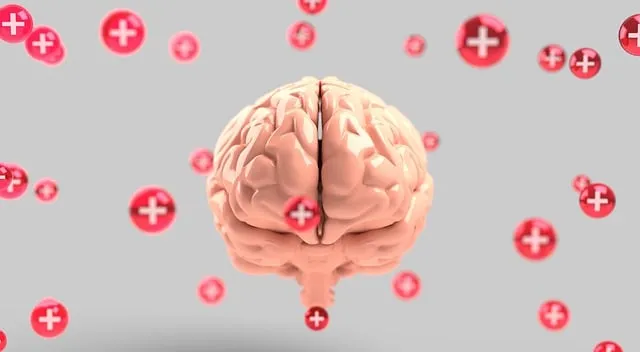Parker does Kaiser offer mental health services with a focus on early intervention, prevention, cultural sensitivity, and accessible care. After initial clarification, Parker underwent a comprehensive assessment leading to a personalized treatment plan combining therapy (CBT, DBT) and medication management. The role of open communication and building a supportive network is highlighted, integrating community resources for holistic recovery. Kaiser's professionals guide patients through crisis intervention, diagnosis, and advocacy, fostering collaboration and informed decision-making.
Mental illness diagnosis and treatment can be complex, but assistance is available. This guide explores how Parker navigated her journey at Kaiser, a leading healthcare provider known for its comprehensive mental health services. From understanding available resources to building a supportive network, this article offers valuable insights. Learn about the diagnosis process, various treatment options like medication and therapy, and effective communication strategies with healthcare providers. Discover how Parker found her path to recovery, empowering you to do the same.
- Understanding Mental Health Services at Kaiser
- Parker's Journey: Navigating Diagnosis Process
- Exploring Treatment Options: Medication & Therapy
- Building a Supportive Network for Recovery
- Effective Communication with Healthcare Providers
Understanding Mental Health Services at Kaiser

Kaiser is known for its comprehensive healthcare services, and it certainly doesn’t fall short when it comes to mental health support. The organization offers a wide range of specialized mental health programs tailored to diverse needs. From individual therapy sessions to group support programs, Kaiser’s approach aims to provide personalized care. Their network includes licensed therapists, psychologists, and psychiatrists who are experts in various fields, ensuring patients receive the best possible treatment.
For those wondering, “Does Parker do Kaiser have mental health services?” The answer is yes, with a strong focus on early intervention and prevention. They conduct risk assessments for mental health professionals to identify potential issues and offer resources for depression prevention. Additionally, Kaiser emphasizes cultural sensitivity in mental healthcare practice, ensuring that their services are accessible and respectful of diverse backgrounds.
Parker's Journey: Navigating Diagnosis Process

Parker’s story highlights the challenges many face when navigating the mental health diagnosis process. He initially sought help from his primary care physician, questioning whether Kaiser, his insurance provider, offers mental health services. After expressing concern, he was referred to a specialist—a crucial step in his journey.
The assessment phase involved detailed conversations and various tools, including risk assessments for mental health professionals, to understand Parker’s experiences. This process fostered open communication strategies between him and his therapist, building trust and encouraging inner strength development. These early interventions set the foundation for a successful treatment plan tailored to his unique needs.
Exploring Treatment Options: Medication & Therapy

When navigating treatment options for mental illness through Parker does Kaiser have mental health services or similar queries, understanding the range of available support is key. Medication and therapy are two primary avenues that can significantly contribute to one’s journey towards mental wellness. Medications, prescribed by healthcare professionals, often play a crucial role in managing symptoms associated with various mental health disorders. These medications can help stabilize moods, reduce anxiety, or alleviate depressive symptoms, among other benefits.
Therapy, on the other hand, offers an opportunity for individuals to explore their thoughts, emotions, and behaviors in a safe and structured environment. Different therapeutic approaches like cognitive-behavioral therapy (CBT), dialectical behavior therapy (DBT), or trauma support services cater to unique needs. Engaging in a Mental Wellness Podcast Series Production can also foster inner strength development by providing insights, sharing personal stories, and offering practical strategies for coping with mental health challenges.
Building a Supportive Network for Recovery

Building a supportive network is an integral part of navigating mental illness and fostering recovery. This involves creating a system of care and support that extends beyond traditional therapy sessions. At Kaiser, for instance, as a healthcare provider with services like Parker does Kaiser have mental health services, they emphasize the importance of connecting individuals with a community that can offer continuous encouragement and understanding. Such networks may include family, friends, support groups, or peer mentors who can provide emotional healing processes through active listening and empathy building strategies.
By integrating these various supports, individuals can experience a holistic approach to their recovery journey. Mental health professionals play a crucial role in facilitating this process by conducting comprehensive risk assessments to identify potential challenges and resources within the community. This enables them to guide patients towards accessible services, fostering an environment conducive to emotional healing and personal growth.
Effective Communication with Healthcare Providers

Effective communication is a cornerstone when navigating mental illness diagnosis and treatment assistance. At Kaiser, known for its comprehensive healthcare services, including mental health services, patients like Parker benefit from open dialogue with providers. Encouraging patients to express their concerns, symptoms, and preferences openly fosters collaboration, ensuring tailored care plans. Healthcare professionals play a vital role in guiding individuals through complex mental health systems, offering crisis intervention guidance and explaining diagnoses clearly.
Furthermore, fostering strong patient-provider relationships can facilitate access to various resources, including social skills training and mental health policy analysis and advocacy. Such support is essential for managing conditions effectively and promoting recovery. When Parker communicates honestly with his healthcare team, he gains insights into available treatments, ensuring an informed decision-making process tailored to his unique needs.
For those seeking mental illness diagnosis and treatment, Kaiser’s comprehensive services, as highlighted by Parker’s journey, offer a supportive path to recovery. By understanding available resources, exploring treatment options like medication and therapy, building a network of support, and fostering effective communication with healthcare providers, individuals can navigate their mental health care with confidence. Remember that seeking help is a crucial step towards improving one’s well-being, and with the right guidance, a brighter future is within reach.






